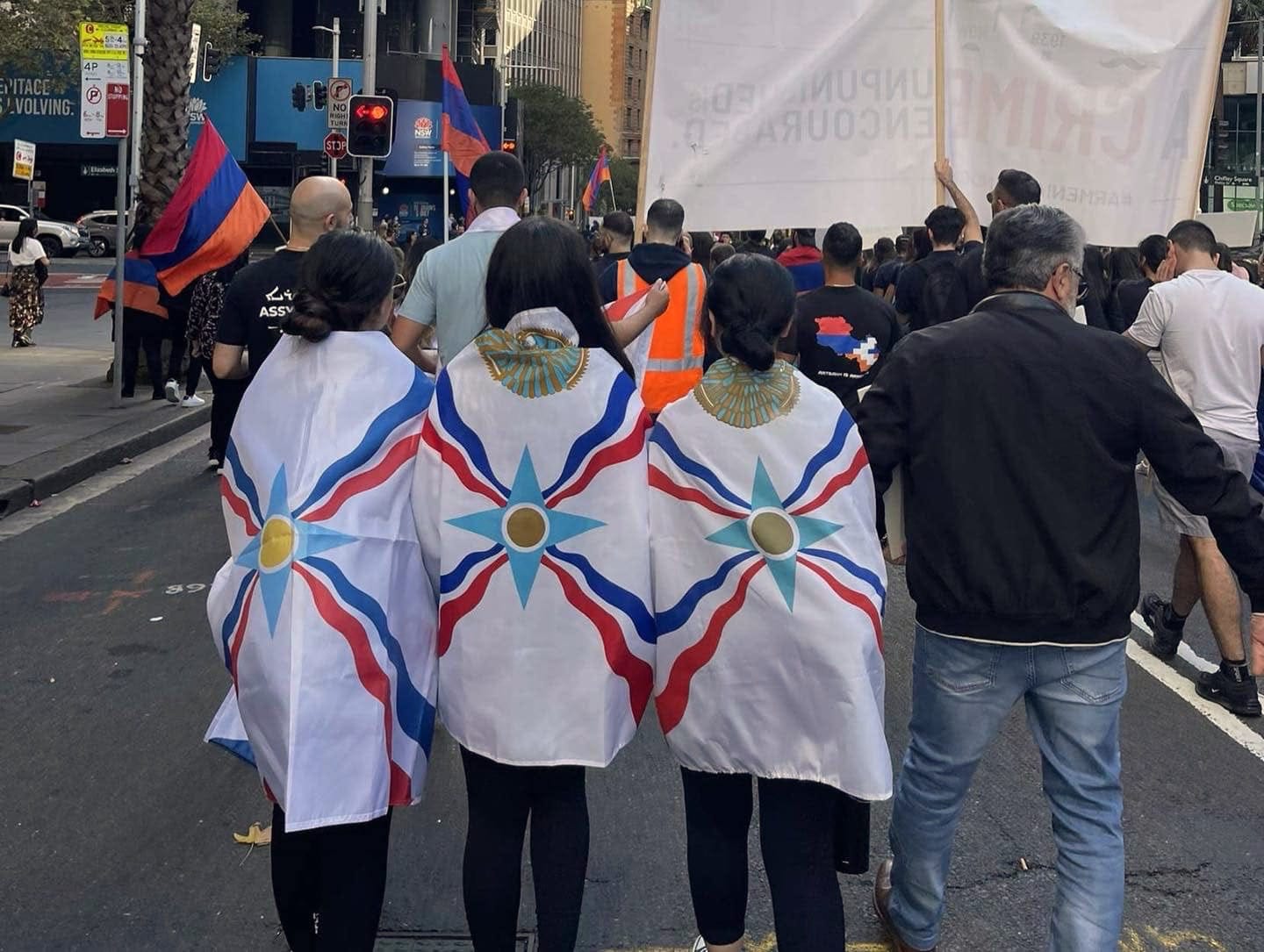Six women who had joined ISIS recently escaped detention camps with their children in north-eastern Syria and travelled to Lebanon, according to Australia's ABC News. After being detained for lacking valid documents, they were issued Australian passports following DNA and security checks before being flown back to Australia.
Government officials have insisted this was not part of a formal repatriation program. “The Australian government is not providing assistance and is not repatriating individuals in Syrian internally displaced persons camps,” a spokesperson said to Australian journalists, adding that national security agencies are prepared to manage the situation.
“A betrayal of victims”
Assyrian organisations say the decision to allow ISIS-affiliated individuals back into Australia disregards the trauma of communities who suffered under ISIS terror.
The Young Assyrians (TYA), a Sydney-based advocacy group, had already warned in September that returning ISIS female members pose significant risks to national security while re-traumatising minorities who were the primary victims of the terrorist group.
ISIS women aided their men to perpetrate atrocities against Assyrians
TYA President Dennis Suro criticised the lack of transparency in the process when speaking to The Herald: "There's no consultation with the community before they even bring them here," he said. "Last time, they brought them back into our communities, into an area with a high population of Assyrians. Obviously there's members of our community who were victims of ISIS and ISIS women aided their men to perpetrate atrocities against Assyrians."

Australia has also welcomed Yazidi refugees, many of whom were direct victims of the Yazidi Genocide carried out by ISIS. An ABC News report noted the case of a Yazidi girl forced into sexual slavery at age 11, sold seven times before she escaped to Australia. Today, an estimated 2,600 Yazidi women and girls remain missing in captivity.
The crimes committed by ISIS against Assyrians, Yazidis, and other minorities have been formally recognised as genocide by the United States, the United Nations, the British Parliament, and the European Parliament, although none of these actors has offered any significant help to the victims and their communities. For many survivors in Australia, the government’s decision to bring back women tied to ISIS is not only a national security concern but also a profound moral failure.
Opposition demands answers
The federal Opposition has also condemned the government’s handling of the situation. Opposition Leader Sussan Ley accused Prime Minister Anthony Albanese and Home Affairs Minister Tony Burke of gross mismanagement and secrecy. “Prime Minister Anthony Albanese and Home Affairs Minister Tony Burke have either bungled this process or deliberately concealed it. Either way, they have invited risk into our communities without transparency, without consultation, and without the knowledge of the Australian people.”
Assyrian Christian Australians, victims of ISIS themselves, have been ignored once again
Ms Ley highlighted that the government’s actions ignored the very communities most affected by ISIS atrocities. "Assyrian Christian Australians, victims of ISIS themselves, have been ignored once again. Their communities may now be forced to live alongside those who chose to support the very terrorists who inflicted such horrors upon them.”
A wound reopened
For the Assyrian community, the debate goes beyond policy. It is a raw reminder of the atrocities endured during ISIS’s campaign of violence: mass killings, forced displacement, and the destruction of churches and villages.
Many Assyrian families in Australia still carry that trauma. The prospect of ISIS-linked individuals living freely in their suburbs is seen as an insult to survivors who continue to grieve lost relatives and a destroyed homeland.
Community leaders insist that the government must prioritise justice and accountability. They argue that decisions affecting survivors of genocide should not be made behind closed doors, but in consultation with the communities most directly impacted.
The Albanese Government maintains that returnees undergo rigorous vetting by authorities before being allowed back into the country. Officials argue that Australia cannot abandon its citizens indefinitely, and that security agencies are equipped to manage potential risks.
But with more Australian women and children still in detention camps in Syria, the debate is far from settled. For the Assyrian community, the principle remains clear: justice for victims must come first – and the government must be transparent about who is being brought back, and why.









